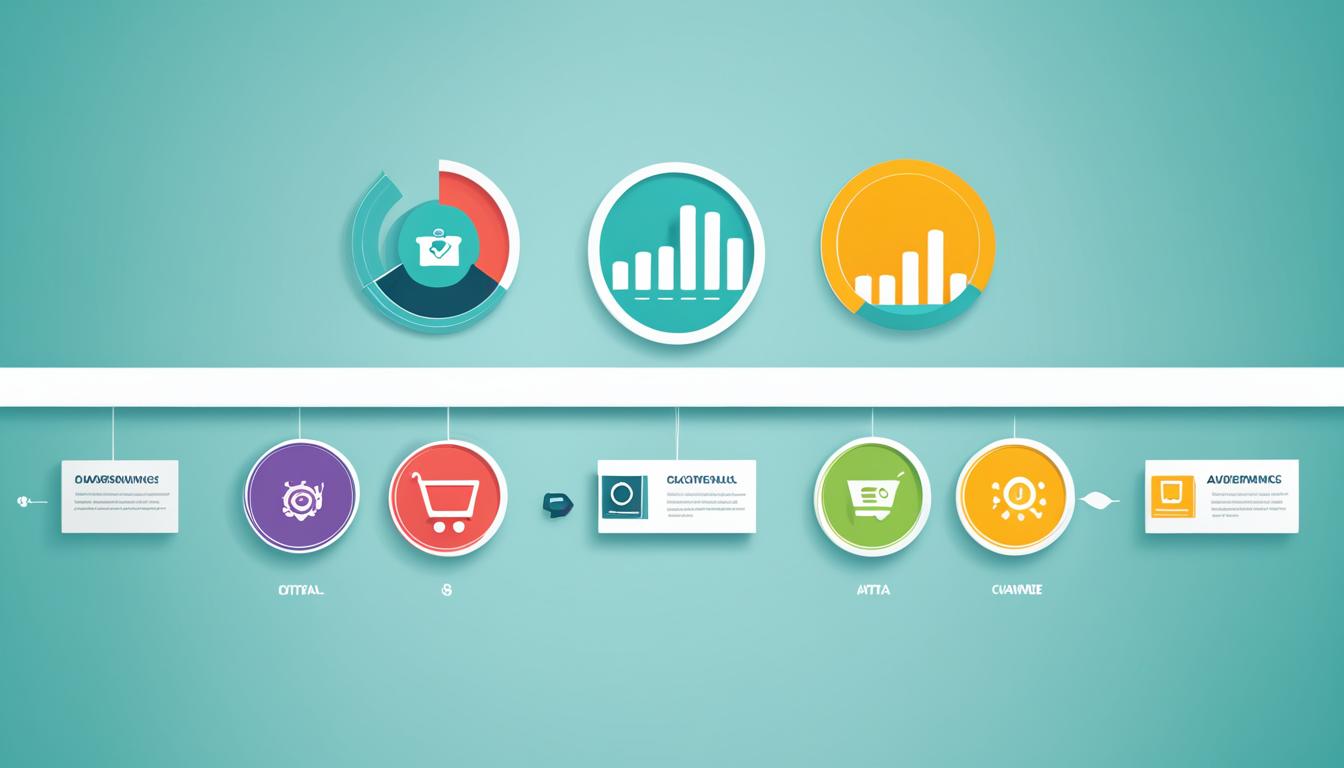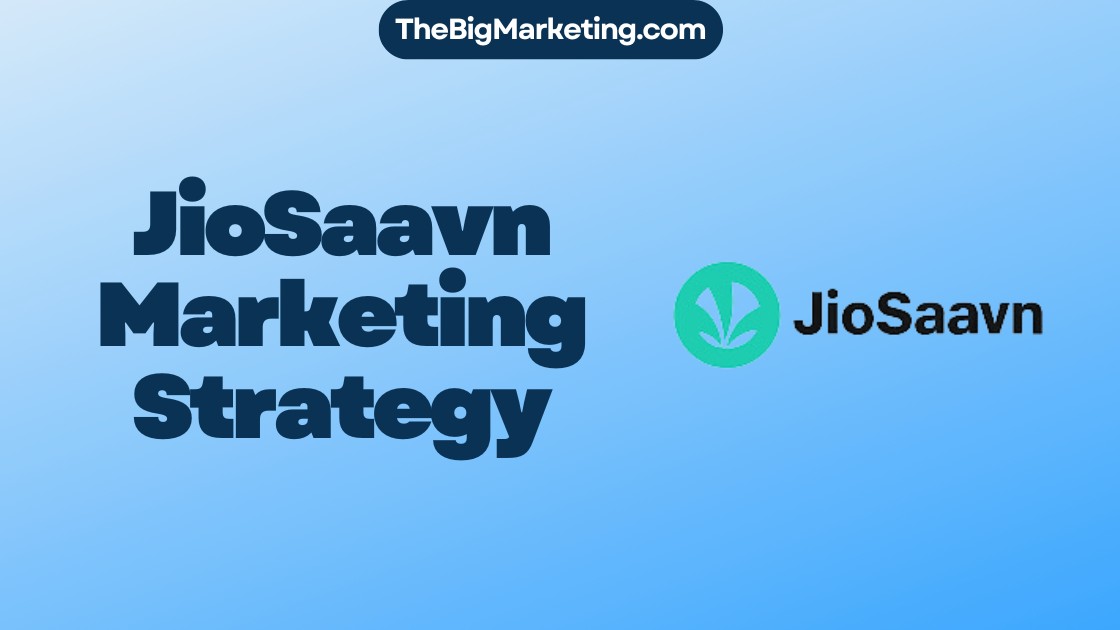Morrisons, the UK’s fourth largest food retailer, has crafted an impactful marketing strategy to propel its growth and strengthen its brand positioning in 2024. With over 450 stores and an annual turnover of £15bn, Morrisons is continuously evolving its marketing approach to stay ahead in a competitive market.
At the core of Morrisons’ marketing strategy is a commitment to understanding and meeting customer needs effectively. By adopting a customer-centric approach, Morrisons aims to differentiate itself from competitors and create lasting connections with consumers.
Through a comprehensive market segmentation analysis and in-depth competitive analysis, Morrisons identifies key target segments and implements tailored promotional tactics and advertising campaigns that resonate with their diverse customer base. The company’s digital marketing efforts focus on utilizing technology to enhance customer experience and drive sales.
With a clear brand positioning strategy, Morrisons aims to convey its unique value proposition to customers. By offering quality products, competitive prices, and unbeatable customer service, Morrisons strives to be the preferred choice for consumers seeking a pleasant and convenient shopping experience.
In addition to branding and customer engagement, Morrisons also emphasizes efficiency and growth opportunities. The company invests in IT upgrades to streamline operations and capture growth in the convenience sector. By continually analyzing and adapting to external factors, such as political, economic, social, technological, legal, and environmental influences, Morrisons ensures its marketing strategies align with prevailing market conditions.
In conclusion, Morrisons’ marketing strategy for 2024 is a holistic approach that aims to strengthen the brand, capture growth opportunities, and deliver exceptional value to its customers. By focusing on customer-centricity, efficient operations, and strategic market positioning, Morrisons is poised for success in a rapidly evolving retail landscape.
Key Takeaways:
- Morrisons’ marketing strategy revolves around understanding customer needs and delivering exceptional value through quality products and unbeatable customer service.
- The company utilizes market segmentation and competitive analysis to tailor promotional tactics and advertising campaigns for different customer segments.
- Morrisons’ digital marketing efforts focus on leveraging technology to enhance customer experience and drive sales.
- Efficiency and growth opportunities are key focus areas for Morrisons, with investments in IT upgrades and strategic market positioning.
- Morrisons’ marketing strategy is aligned with prevailing market conditions and external influences, ensuring continued success in a dynamic retail landscape.
Marketing at Morrisons
Marketing plays a crucial role in translating customer needs into revenue, and Morrisons recognizes the importance of an effective marketing approach. The company’s marketing strategy focuses on strengthening its brand, increasing efficiency, and capturing growth opportunities in the competitive supermarket industry.
One of the key aspects of Morrisons’ marketing approach is reinforcing what sets the brand apart from its competitors. By clearly communicating its unique value proposition and emphasizing its commitment to providing value for money, quality products, and unbeatable customer service, Morrisons aims to differentiate itself and attract and retain loyal customers.
In addition to brand reinforcement, Morrisons employs various effective promotional tactics to drive growth and results. The company invests in major marketing campaigns to create awareness and engage customers. For example, in 2023, Morrisons launched a successful marketing campaign titled “More Reasons to Shop at Morrisons,” which showcased the brand’s heart and soul.
Furthermore, Morrisons has increased its spending on marketing and advertising by 21% compared to the previous year, demonstrating the company’s commitment to promoting its products and services effectively. By allocating resources to marketing efforts, Morrisons aims to reach a wider audience, increase brand awareness, and ultimately drive sales.
To further enhance its marketing effectiveness, Morrisons utilizes a combination of traditional and digital marketing channels. The company leverages its strong physical store presence and invests in online platforms and e-commerce capabilities. By embracing digital marketing efforts, Morrisons can reach customers through various touchpoints and provide a seamless omni-channel experience.
Ultimately, Morrisons’ marketing approach is aimed at driving growth, strengthening brand loyalty, and capturing market share. The combination of reinforcing its unique brand proposition, investing in effective promotional tactics, and leveraging both traditional and digital marketing channels all contribute to Morrisons’ marketing success.
| Focus Areas | Key Strategies |
|---|---|
| Brand Reinforcement | Communicating unique value proposition, emphasis on value for money, quality products, and unbeatable customer service |
| Promotional Tactics | Investing in major marketing campaigns, increased spending on marketing and advertising |
| Multi-Channel Approach | Utilizing traditional and digital marketing channels, online platforms, and e-commerce capabilities |
Morrison’s Vision and Business Objectives
Morrison’s, one of the UK’s leading food retailers, has a clear vision for the future: to be “Different and Better than Ever.” This vision reflects the company’s commitment to standing out in the market and providing unique experiences for its customers. To achieve this vision, Morrison’s has set several business objectives that align with its overall strategy.
One of the key business objectives of Morrison’s is to strengthen its brand positioning. The company recognizes the importance of a strong brand in building customer trust and loyalty. By developing a distinctive brand identity and effectively communicating its value proposition, Morrison’s aims to differentiate itself from competitors and create a lasting impression in consumers’ minds.
In addition to brand positioning, Morrison’s business objectives also revolve around increasing efficiency through IT upgrades. The company understands that digital transformation plays a crucial role in streamlining operations, improving customer experience, and staying competitive in the ever-evolving retail industry. By investing in technology and leveraging data analytics, Morrison’s aims to optimize its processes and deliver a seamless and convenient shopping experience for its customers.
Furthermore, capturing growth in the convenience sector is another key business objective for Morrison’s. With the changing consumer preferences and increasing demand for convenience, the company recognizes the potential in this market segment. Through strategic expansion and innovative offerings tailored to the convenience sector, Morrison’s aims to tap into new opportunities and attract a broader customer base.
By focusing on these business objectives, Morrison’s aims to position itself as a market leader, drive growth, and continue delivering value to its customers. The company’s vision and business objectives serve as a guiding force in shaping its strategies and ensuring its success in the competitive retail landscape.
External Factors Influencing Marketing at Morrisons
In addition to Morrisons’ internal strategies and initiatives, the company’s marketing efforts are influenced by various external factors. These include political, economical, social, technological, legal, and environmental factors that shape the marketplace in which Morrisons operates.
Political Factors
One prominent political factor is the nation’s increased focus on healthier foods. To address this, Morrisons has positioned itself as a provider of quality, wholesome food at competitive prices. By offering a wide range of nutritious options, the company aligns with evolving consumer preferences and government health initiatives.
Economic Factors
Price inflation and unemployment rates are important economic factors that impact Morrisons’ pricing strategies and overall operation. These factors influence the company’s ability to set competitive prices and manage costs effectively in a fluctuating economic landscape.
Social Factors
Consumer trends and buying habits play a significant role in shaping Morrisons’ marketing approach. By closely monitoring shifts in consumer behavior, the company can adapt its product offerings, promotions, and marketing messages to cater to evolving customer needs and preferences.
Technological Factors
Technological advancements have a profound impact on Morrisons’ marketing efforts. The company invests in IT recovery procedures and efficient transport fleets to streamline operations and improve the overall customer experience. By leveraging technology, Morrisons stays ahead in a competitive market.
Legal Factors
Compliance with legal and regulatory requirements is crucial for Morrisons. Health and safety regulations, data protection laws, and stock exchange rules all play a role in shaping the company’s marketing strategies and operational practices.
Environmental Factors
Morrisons is committed to environmental sustainability. The company actively works on reducing waste, sourcing renewable energy, and implementing green initiatives. By prioritizing environmental responsibility, Morrisons ensures that its marketing efforts align with the growing demand for eco-friendly practices.
Understanding and adapting to these external factors is essential for Morrisons’ marketing success. By staying aware of market dynamics and adjusting its strategies accordingly, the company can navigate the ever-changing landscape and meet customer demands effectively.
| External Factors | Influences on Morrisons’ Marketing |
|---|---|
| Political | Nation’s focus on healthier foods |
| Economic | Price inflation, unemployment |
| Social | Consumer trends, buying habits |
| Technological | IT recovery procedures, efficient transport fleet |
| Legal | Health and safety regulations, data protection, stock exchange rules |
| Environmental | Reducing waste, sourcing renewable energy |
Use of Marketing to Achieve Business Objectives
In order to achieve its business objectives, Morrisons leverages marketing strategies at both the corporate and functional levels. At the corporate level, the company focuses on financial performance, return on investment (ROI), and earnings per share (EPS). These objectives are essential for driving profitability and long-term growth.
On the functional level, Morrisons utilizes marketing to build a robust customer database, increase market share, and improve brand awareness. By understanding customer preferences and behaviors, Morrisons can tailor its marketing efforts to attract and retain a loyal customer base. This includes implementing targeted marketing campaigns, utilizing digital channels, and enhancing customer engagement.
Morrisons’ Corporate Level Objectives
At the corporate level, Morrisons sets specific objectives related to financial performance. This includes achieving revenue growth, maximizing profitability, and enhancing shareholder value. By utilizing marketing strategies that resonate with customers and drive sales, Morrisons can improve its overall financial performance. This may involve launching new products or services, expanding into new markets, or enhancing customer relationships through loyalty programs.
Morrisons’ Functional Level Objectives
At the functional level, Morrisons focuses on objectives that directly impact its marketing efforts. This includes building a comprehensive customer database to understand customer demographics, preferences, and purchasing behaviors. With this information, Morrisons can create targeted marketing campaigns that resonate with specific customer segments, increasing the effectiveness of its marketing initiatives.
Additionally, Morrisons aims to increase its market share by implementing competitive pricing strategies, providing a wide range of high-quality products, and delivering exceptional customer service. By continuously improving brand awareness, Morrisons can position itself as a top choice among consumers, increasing its market presence and customer loyalty.
Overall, Morrisons understands the importance of utilizing marketing to achieve its business objectives. By aligning its corporate and functional marketing efforts, the company can drive growth, increase profitability, and maintain its position as a top food retailer in the UK market.
| Corporate Level Objectives | Functional Level Objectives |
|---|---|
| Financial performance | Building a customer database |
| Return on investment (ROI) | Increase market share |
| Earnings per share (EPS) | Improve brand awareness |
Elements of the Marketing Process at Morrisons
The marketing process at Morrisons encompasses various elements of the marketing mix to effectively meet customer needs. These elements include product development, strategic location selection, pricing policies, and promotional efforts. By focusing on these key aspects, Morrisons strives to provide a seamless and satisfying shopping experience for its customers.
Product Development
Product development is a vital component of Morrisons’ marketing strategy. The company continually works on expanding and improving its product offerings to cater to the diverse needs and preferences of its customers. By identifying market trends and consumer demands, Morrisons introduces new products and enhances existing ones to stay competitive in the retail industry.
Strategic Location Selection
Place or strategic location selection plays a crucial role in Morrisons’ marketing approach. The company strategically locates its stores to ensure convenient access for its target customers. By analyzing demographics, population density, and customer shopping behaviors, Morrisons identifies the optimal locations to establish its supermarkets and convenience stores, enabling customers to easily find and access their desired products.
Pricing Policies
Pricing is a critical aspect of Morrisons’ marketing mix. The company adopts competitive pricing policies to attract and retain customers. By offering competitive prices on a wide range of products, Morrisons strives to provide value for money and ensure affordability for its customers. Moreover, the company employs pricing strategies such as price promotions, loyalty programs, and price matching to further enhance its value proposition.
Promotional Efforts
Promotion plays a vital role in Morrisons’ marketing strategy. The company employs various promotional tactics to create awareness, generate interest, and encourage purchase. Morrisons utilizes advertising campaigns, digital marketing efforts, and in-store promotions to effectively communicate its offerings and engage with customers. By utilizing diverse promotional channels, Morrisons aims to reach its target audience and differentiate itself from competitors.
Overall, Morrisons integrates the elements of the marketing mix to prioritize product quality, customer convenience, competitive pricing, and effective promotion. By employing these strategies, Morrisons strives to meet customer needs and maintain its competitive position in the retail industry.
Positioning of Morrisons in the Market
Morrisons, the fourth largest supermarket chain in the UK, competes with prominent players in the industry such as Tesco, ASDA, Sainsbury’s, and Waitrose. The company strategically positions itself as a provider of value for money, offering unbeatable customer service and a pleasant shopping experience.
One of the key factors that differentiates Morrisons from its competitors is its unique “market street” feature, which showcases a wide range of products at competitive prices. This initiative allows customers to explore various offerings in a vibrant and engaging shopping environment.
In addition to its “market street,” Morrisons places a strong emphasis on providing value to its customers. The company ensures that its prices are competitively set, enabling shoppers to obtain quality products without compromising their budgets. By prioritizing affordability and a diverse product range, Morrisons positions itself as an inclusive retailer catering to a broad consumer base.
Moreover, Morrisons places unwavering focus on delivering exceptional customer service. Through excellent staff training and efficient operational processes, the company aims to ensure a seamless and enjoyable shopping experience for its customers, further solidifying its market position.
Morrisons’ Main Market Segments
Morrisons operates primarily in the retail industry, focusing on supermarkets and convenience stores. The company also has a pharmaceutical line. By offering a diverse range of products and services, Morrisons targets a wide range of customers.
With its extensive network of supermarkets, Morrisons caters to the needs of everyday shoppers. From fresh produce to pantry staples, the retail line offers a wide variety of groceries, household items, and personal care products.
In addition to the retail line, Morrisons has ventured into the pharmaceutical sector. The company offers a range of over-the-counter medications, health and wellness products, and prescription services at select locations.
By diversifying its offerings across different market segments, Morrisons aims to meet the diverse needs and preferences of its customers. Whether they are looking for everyday groceries or pharmaceutical products, Morrisons strives to provide convenient and high-quality options.
Challenges and Opportunities for Morrisons
Morrisons, like any company, faces various challenges and opportunities in its operations. Addressing these challenges and capitalizing on the opportunities is crucial for sustainable growth and profitability. Let’s take a closer look at some of the key challenges and opportunities facing Morrisons.
Operational Inefficiencies
One of the challenges Morrisons faces is operational inefficiencies. These inefficiencies can lead to increased production costs, low-capacity utilization, and a misalignment of process choices. To overcome this challenge, Morrisons is focused on optimizing its operations and supply chain strategies. By streamlining processes and improving efficiency, the company can reduce costs and maximize productivity.
Financial Performance
Another challenge for Morrisons is suboptimal financial performance. Inconsistent sales growth can impact the company’s profitability and market position. To improve financial performance, Morrisons is implementing strategic measures to enhance revenue generation, reduce costs, and improve overall financial stability.
Market Competition
In a highly competitive market, Morrisons faces intense competition from rival supermarket chains. Competing against industry giants such as Tesco, ASDA, Sainsbury’s, and Waitrose requires Morrisons to differentiate itself through its offerings and marketing strategies. By leveraging its unique market positioning and focusing on customer-centric initiatives, Morrisons can effectively compete and attract a loyal customer base.
Expansion Opportunities
While facing challenges, Morrisons also has significant expansion opportunities, particularly in the convenience sector. The company’s strong brand and wide range of competitively priced products position it well for growth in the convenience market. By strategically expanding its store network and capitalizing on consumer demand for convenient shopping experiences, Morrisons can tap into new revenue streams and increase its market share.
Challenges and Opportunities for Morrisons
| Challenges | Opportunities |
|---|---|
| Operational inefficiencies | Expansion in the convenience sector |
| Financial performance | Competitive pricing and marketing strategies |
| Low-capacity utilization | Increased market share |
| Misalignment of process choices | Capitalizing on brand strengths |
| Inconsistent sales growth | Optimization of operations and supply chain |
| Market competition | Enhanced customer loyalty and engagement |
| Production costs |
Morrisons recognizes these challenges and opportunities and is actively implementing strategies to address them. By overcoming operational inefficiencies, improving financial performance, and capitalizing on expansion opportunities, Morrisons aims to drive sustainable growth, maintain its competitive edge, and solidify its position in the market.
Morrisons’ Brand Revamp and Promotional Efforts
In a bid to strengthen its position in the market, Morrisons underwent a significant brand revamp in 2023. The company recognized the need to improve its customer loyalty offering and launched a major marketing campaign titled “More Reasons to Shop at Morrisons.”
This campaign aimed to highlight the brand’s heart and soul, while also showcasing the unique benefits of shopping at Morrisons. As part of this endeavor, the company significantly increased its spending on marketing and advertising, allocating 21% more budget compared to the previous year.
This increased spending allowed Morrisons to be bolder in its marketing efforts and reach a wider audience with its message of value, quality, and convenience.
By investing heavily in their brand revamp and promotional activities, Morrisons aimed to create a renewed sense of excitement and loyalty among customers. The company recognized the importance of staying relevant in a competitive market and sought to position itself as the go-to supermarket for customer needs.
As part of this brand revamp, Morrisons focused not only on attracting new customers but also on retaining existing ones by offering enhanced loyalty programs and rewards. The company aimed to build long-term relationships with its customer base and create a sense of appreciation for their continued support.
Increased Budget Allocation for Marketing and Advertising
The increased spending on marketing and advertising allowed Morrisons to boost its presence across various channels, including traditional media, digital platforms, and in-store promotions.
Through strategic brand partnerships, targeted promotions, and compelling advertisements, the company aimed to generate greater awareness and drive increased footfall to its stores.
The goal was to reinforce Morrisons’ position as a reliable and customer-focused supermarket, while also showcasing the wide range of products and services it offers.
Leveraging Marketing to Enhance Customer Loyalty
By revamping its brand and focusing on customer loyalty, Morrisons aimed to create a strong emotional connection with its customers. The company recognized that building lasting relationships was key to driving repeat business and growth.
Through its revamped loyalty offering, Morrisons provided customers with added incentives to choose their stores over competitors. This included exclusive discounts, personalized offers, and tailored rewards that catered to individual shopping preferences.
Through these efforts, Morrisons aimed to make customers feel valued and appreciated, while also providing them with even more reasons to continue shopping at their stores.
| Key Initiatives | Benefits |
|---|---|
| Enhanced loyalty programs | Increased customer retention |
| Personalized offers and rewards | Better customer engagement |
| Exclusive discounts | Incentives for choosing Morrisons |
This comprehensive brand revamp, combined with the increased spending on marketing and advertising, allowed Morrisons to solidify its position in the market and drive growth. By successfully appealing to customers’ emotions and creating a sense of loyalty, the company aimed to enhance customer satisfaction and differentiate itself from competitors.
Morrisons’ Pricing and Value Proposition
Morrisons is committed to providing its customers with value for money through its pricing strategy. The company understands the importance of offering competitive prices without compromising on quality. To ensure this, Morrisons has implemented various initiatives to deliver affordable and high-quality products to its customers.
One of the initiatives is the price lock program, which guarantees that prices for essential products remain consistently low. This initiative aims to provide stability and assurance to customers, allowing them to budget effectively and get the best value for their money.
In addition to the price lock program, Morrisons also offers loyalty offers to its customers. These offers provide additional discounts and benefits to loyal customers, further enhancing the value proposition and incentivizing repeat purchases.
Furthermore, Morrisons understands the importance of competitive pricing in today’s market. To ensure that its prices remain competitive, the company has implemented a price match strategy with discounters like Aldi and Lidl. This strategy allows customers to shop at Morrisons with confidence, knowing that they are getting the best price available.
By prioritizing value for money, Morrisons aims to make shopping convenient and affordable for its customers. The company strives to provide high-quality products at competitive prices, giving customers the assurance that they are getting the most out of their money.
Morrisons’ Pricing and Value Proposition
| Initiatives | Description |
|---|---|
| Price lock program | Guaranteed low prices for essential products |
| Loyalty offers | Additional discounts and benefits for loyal customers |
| Price match strategy | Matching prices with discounters like Aldi and Lidl |
Conclusion
With a strong focus on strengthening its brand, increasing efficiency, and capturing growth opportunities, Morrisons has developed a robust marketing strategy. By investing in marketing initiatives, revamping its brand image, and offering competitive prices and promotions, the company aims to deliver value for money and improve the customer experience.
Looking ahead, the future prospects for Morrisons depend on its ability to optimize operations, adapt to changing market conditions, and effectively meet customer needs. By continuously optimizing its operations and supply chain strategies, Morrisons can drive sustainable growth and remain competitive in the market.
Overall, Morrisons’ marketing strategy reflects its commitment to delivering value, convenience, and quality to its customers. Through ongoing efforts to strengthen its brand and improve operational efficiency, Morrisons is well-positioned to capitalize on growth opportunities and maintain its market relevance in the future.







